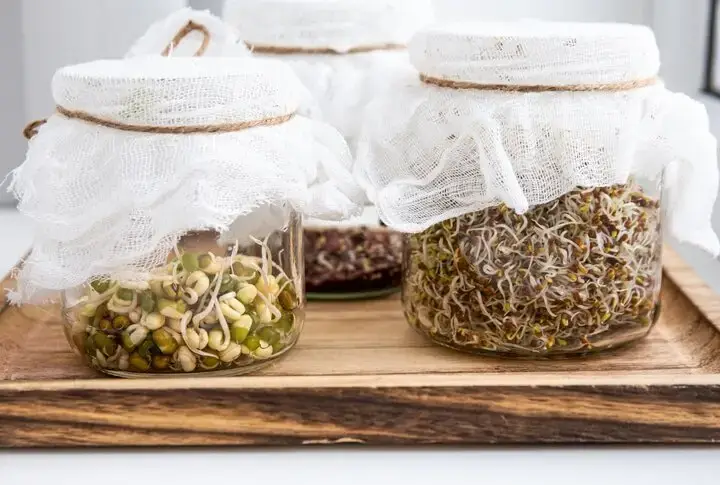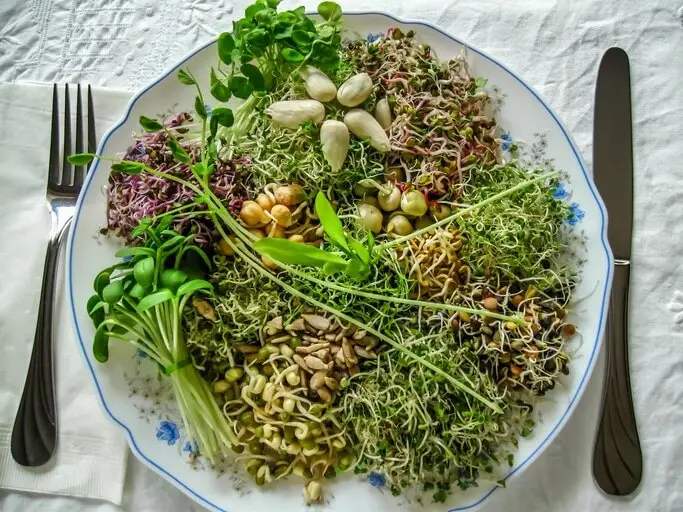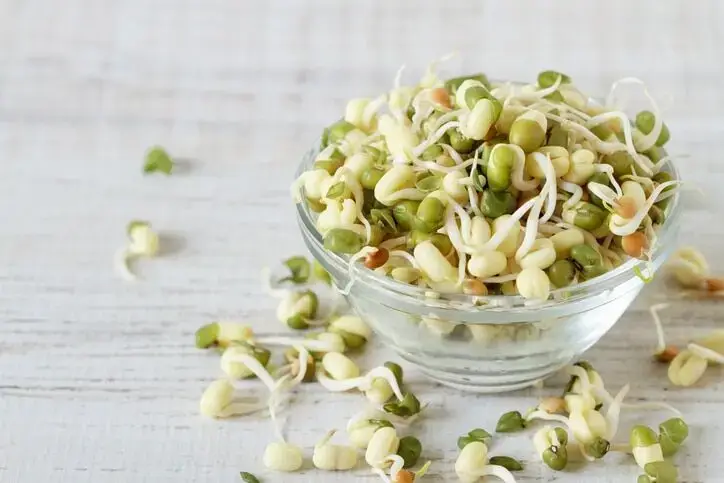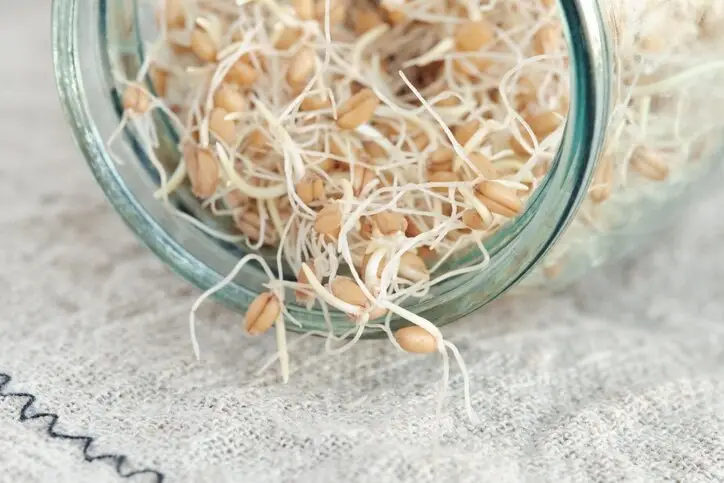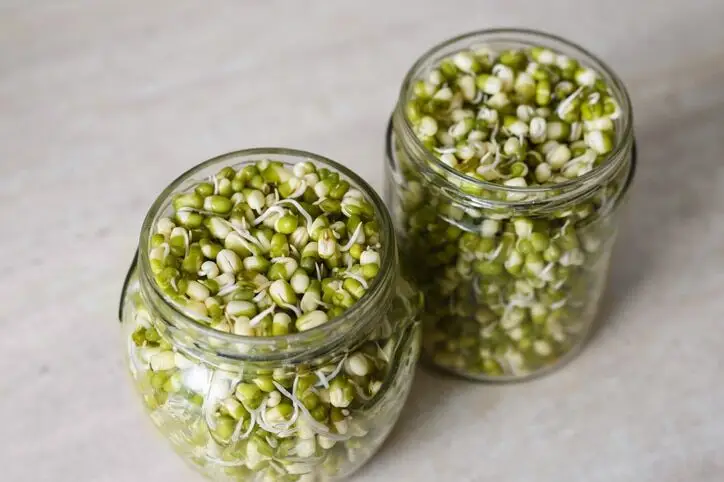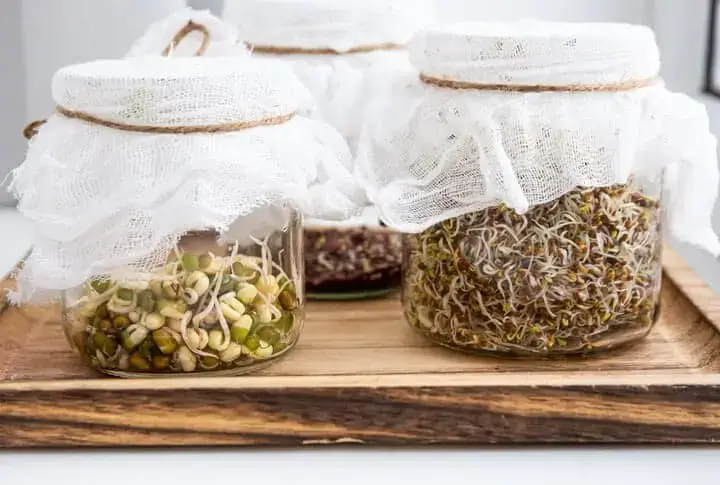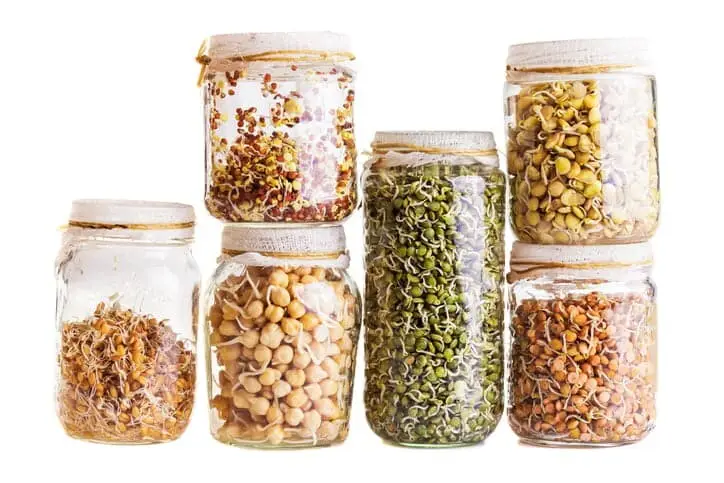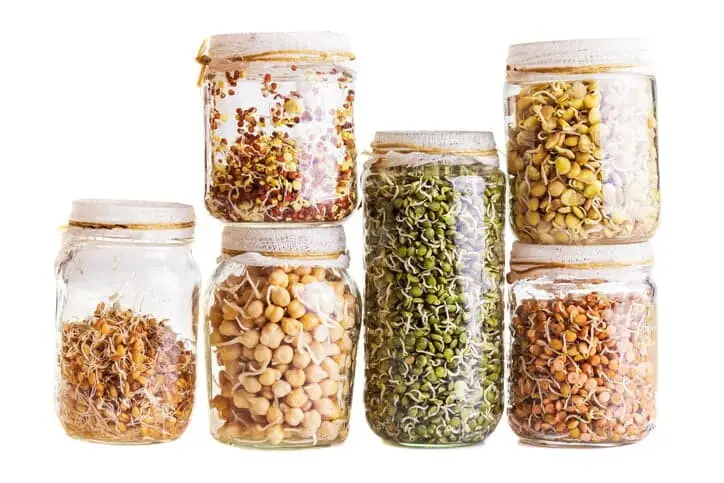The Health Benefits of Sprouts: A Nutritional Powerhouse

What are the health benefits of Sprouts?
Those tiny young plants that emerge from germinated seeds, are not only a culinary delight but also a nutritional powerhouse.
Bursting with flavor, sprouts offer a wide array of health benefits that make them an excellent addition to any diet. From increased nutrient content to potential disease-fighting properties, let's explore the numerous ways sprouts can enhance your well-being.

- Rich in Essential Nutrients: Sprouts are densely packed with essential nutrients, including vitamins, minerals, and antioxidants. They are particularly abundant in vitamin C, vitamin K, vitamin E, folate, iron, and potassium. Vitamin C is known for its immune-boosting properties, while vitamin K plays a vital role in blood clotting and bone health. Folate is essential for cell growth and development, making sprouts an excellent choice for pregnant women. Iron is necessary for oxygen transport in the body, and potassium helps maintain healthy blood pressure levels. Incorporating sprouts into your diet is a great way to ensure you’re meeting your nutritional needs.
- Enhanced Digestibility: During the sprouting process, the concentration of enzymes increases, which aids in the breakdown of complex carbohydrates, proteins, and fats. This enhanced enzymatic activity improves the overall digestibility of sprouts and facilitates the absorption of nutrients by the body. Additionally, sprouts are rich in dietary fiber, which helps promote healthy digestion. The fiber content aids in maintaining regular bowel movements, preventing constipation, and supporting overall gut health.
- Increased Antioxidant Levels: Sprouts are known to possess high levels of antioxidants, such as flavonoids and phenolic compounds. These antioxidants protect the body against harmful free radicals, reducing oxidative stress and lowering the risk of chronic diseases like heart disease and certain types of cancer. Antioxidants also have anti-aging properties, promoting youthful skin and cellular health. Including sprouts in your diet can provide a powerful boost of antioxidants to support your overall well-being.
- Potential Anti-inflammatory Properties: Certain types of sprouts, such as broccoli sprouts, contain a compound called sulforaphane, which has potent anti-inflammatory properties. Sulforaphane has been found to have potential in reducing inflammation and preventing chronic diseases like cardiovascular disease, cancer, and neurodegenerative disorders. Including sprouts with anti-inflammatory benefits in your diet may help alleviate symptoms of inflammatory conditions like arthritis and promote overall joint health. Broccoli sprouts, in particular, have gained attention for their potential in reducing inflammation markers in the body.
- Digestive Health Promotion: Sprouts are a rich source of dietary fiber, which plays a crucial role in maintaining a healthy digestive system. Adequate fiber intake supports regular bowel movements, prevents constipation, and promotes the growth of beneficial gut bacteria. The fiber content in sprouts helps in reducing the risk of digestive disorders, such as diverticulitis, and supports optimal gut health. Incorporating sprouts into your meals can contribute to a well-balanced and digestive-friendly diet.
Weight Management Aid
Due to their high fiber and water content, sprouts can be a valuable addition to a weight management plan. Including sprouts in your meals can help you feel fuller for longer, curb cravings, and support a healthy metabolism. The low calorie and fat content of sprouts make them an ideal food choice for individuals aiming to achieve or maintain a healthy weight. Sprouts can be a satisfying and nutrient-dense component of salads, stir-fries, wraps, sandwiches, and more. By incorporating sprouts into your meals, you can add volume and nutrients without significantly increasing the calorie content.
- Potential Cardiovascular Benefits: The combination of antioxidants, fiber, and phytochemicals found in sprouts may contribute to cardiovascular health. Studies suggest that regular consumption of sprouts may help lower cholesterol levels, regulate blood pressure, and reduce the risk of heart disease. The fiber content in sprouts can help in managing cholesterol levels by binding to cholesterol in the digestive system and aiding its elimination. Additionally, the antioxidants present in sprouts help protect the heart from oxidative stress and inflammation. Including sprouts as part of a heart-healthy diet may have long-term benefits for cardiovascular well-being.
- Immune System Support: The impressive nutrient profile of sprouts, including vitamins C and E, helps support a robust immune system. Vitamin C is well-known for its immune-boosting properties, as it enhances the production of white blood cells and strengthens the body’s defense against infections. Vitamin E, on the other hand, acts as a powerful antioxidant that protects the cells from damage. A strong immune system is crucial for overall health and well-being, and sprouts can play a role in providing the necessary nutrients to support immune function.
Incorporating Sprouts into Your Diet
Now that we’ve explored the various health benefits of sprouts, you might wonder how to include them in your diet. Sprouts are incredibly versatile and can be enjoyed in a variety of ways. Here are some ideas to get you started:
- Salads: Add a handful of fresh sprouts to your favorite salads for an extra crunch and a nutrient boost.
- Sandwiches and Wraps: Layer sprouts on your sandwiches or wraps for added texture and freshness.
- Stir-fries and Sauteed Dishes: Toss sprouts into stir-fries or sauteed dishes for a nutritious addition that adds flavor and texture.
- Smoothies: Consider adding sprouts like pea shoots or sunflower sprouts to your green smoothies for an added nutritional punch.
- Soups and Stews: Sprouts can be added to soups and stews towards the end of cooking for a vibrant and nutritious touch.
- Toppings: Sprinkle sprouts on top of your favorite dishes, such as roasted vegetables, grain bowls, or even avocado toast.
- Juices and Sprout Shots: Explore juicing sprouts or try sprout shots for a concentrated dose of nutrients.
Always wash sprouts thoroughly before consuming them to reduce the risk of potential bacterial contamination. If you’re new to sprouts, start with small amounts and gradually increase the quantity as you become accustomed to them.
YouTube Videos and Websites: To further explore the world of sprouts, here are some helpful resources that provide additional information, recipes, and guidance:
YouTube Videos:
- “How to Sprout at Home: A Step-by-Step Guide” by Sprout House
- “The Nutritional Benefits of Sprouts” by Healthline
Websites:
- Sprout People (www.sproutpeople.org): A comprehensive website dedicated to sprouting, featuring tutorials, recipes, and a wide variety of sprouting seeds.
- The Sprout House (www.thesprouthouse.com): Offers a wealth of information on sprouting, including a guide to different sprouting methods, sprouting tips, and recipes.
Conclusion
Sprouts are not only a flavorful addition to meals but also a nutritional powerhouse packed with vitamins, minerals, and antioxidants. From supporting digestion to promoting cardiovascular health and immune system function, the benefits of including sprouts in your diet are numerous.
Disclaimer
The information provided in this article is for educational and informational purposes only and is not intended as medical advice. It is not a substitute for professional medical advice, diagnosis, or treatment. Always seek the advice of a qualified healthcare provider with any questions you may have regarding a medical condition. The author and publisher of this article are not responsible for any adverse effects or consequences resulting from the use of any suggestions, preparations, or procedures described in this article.


